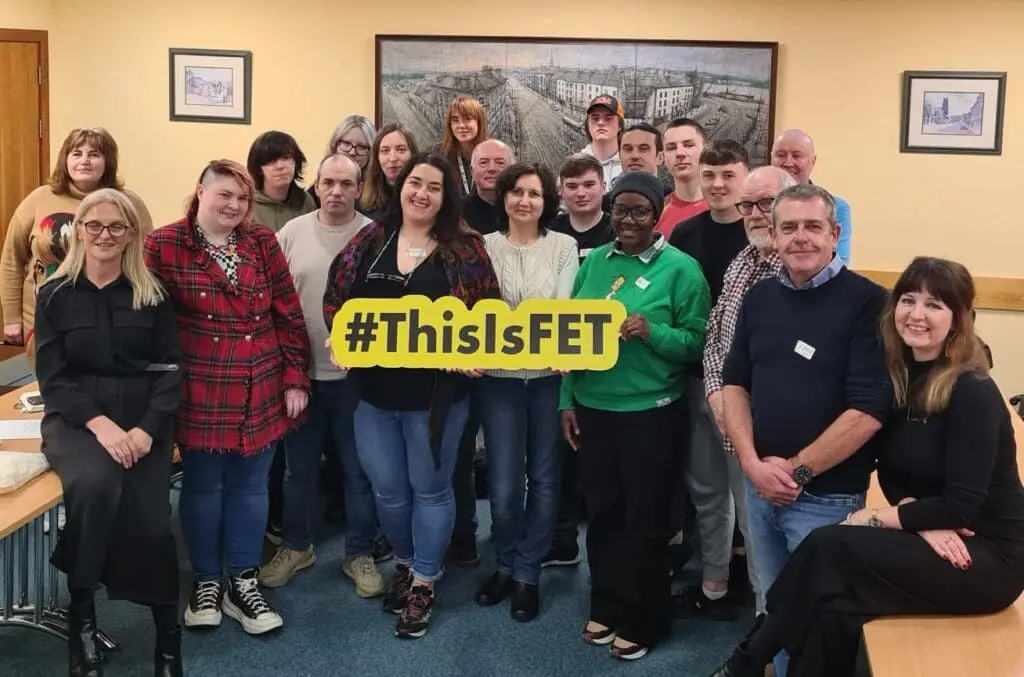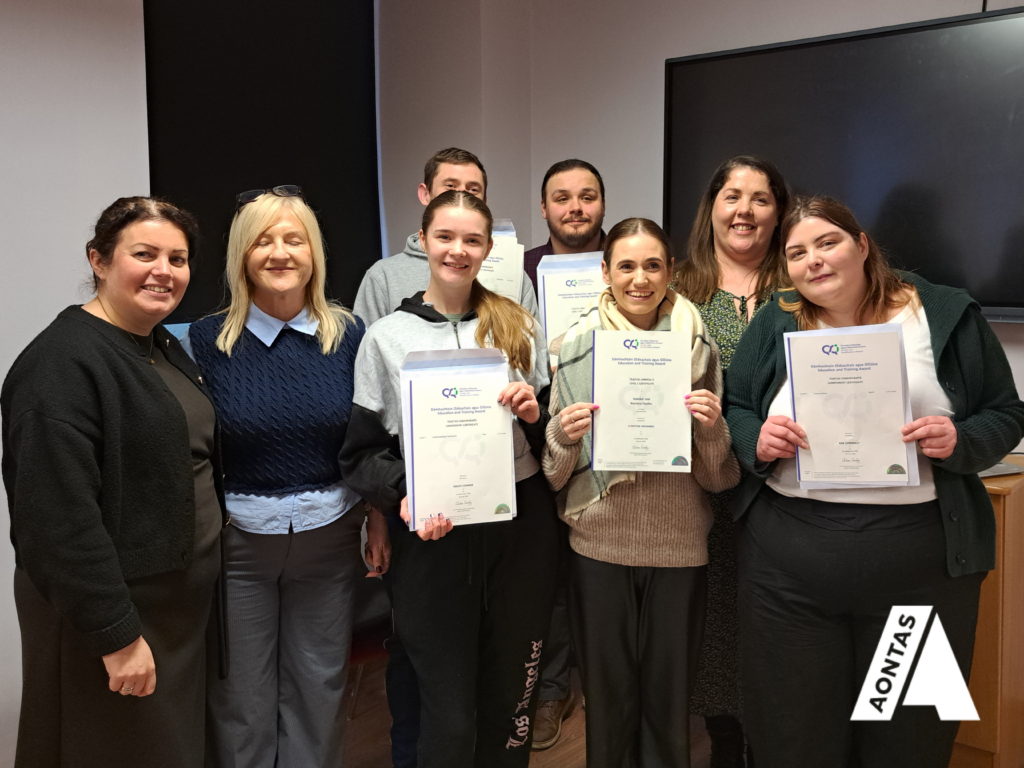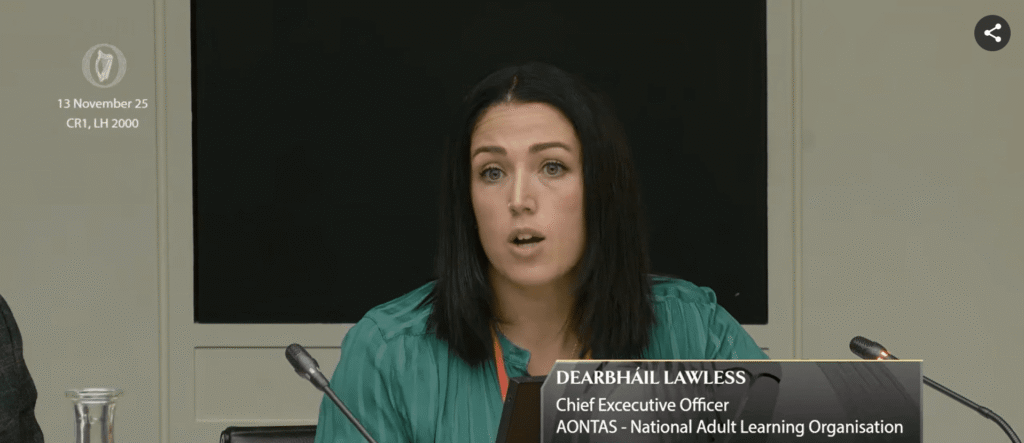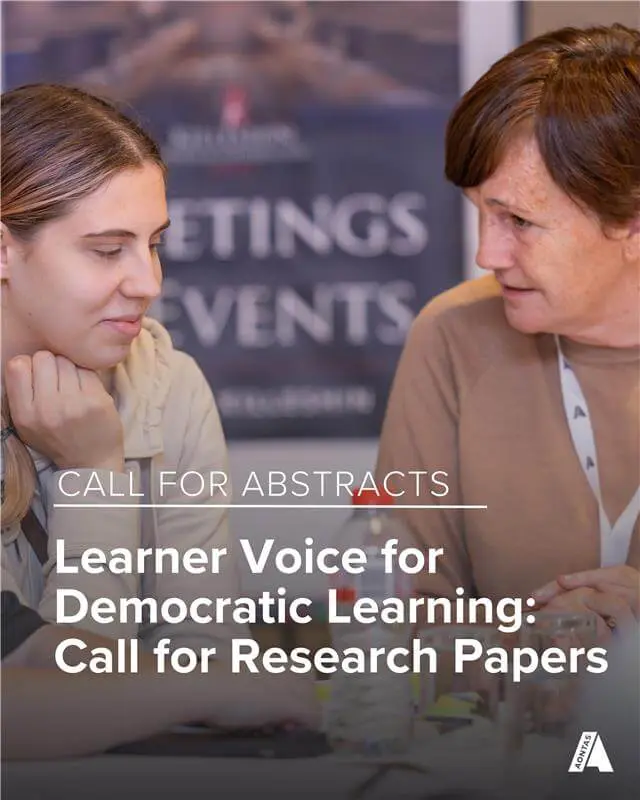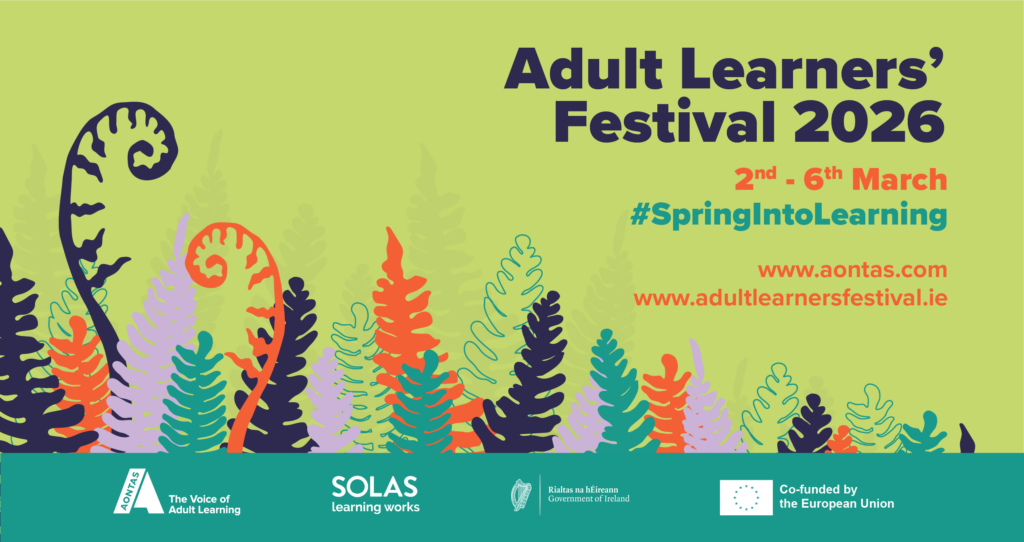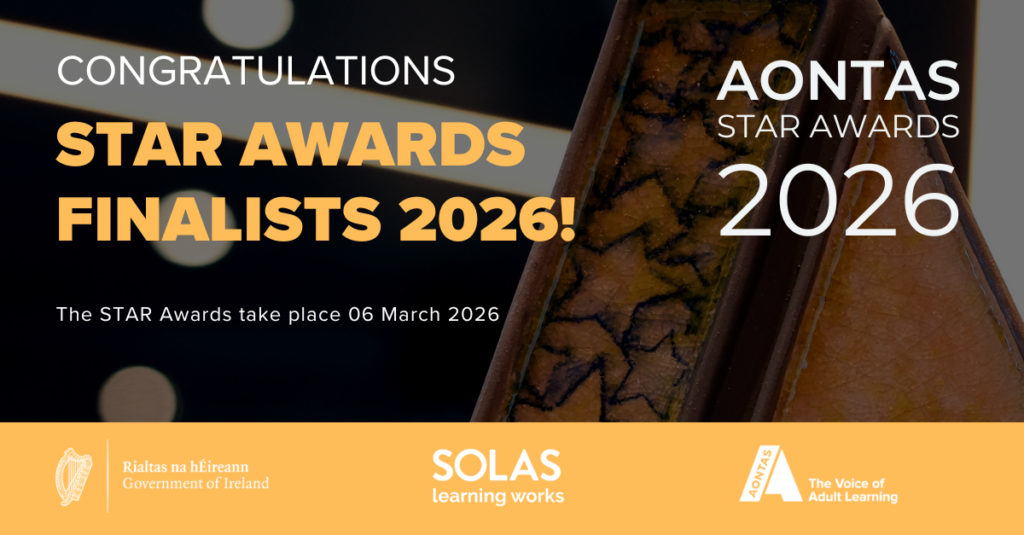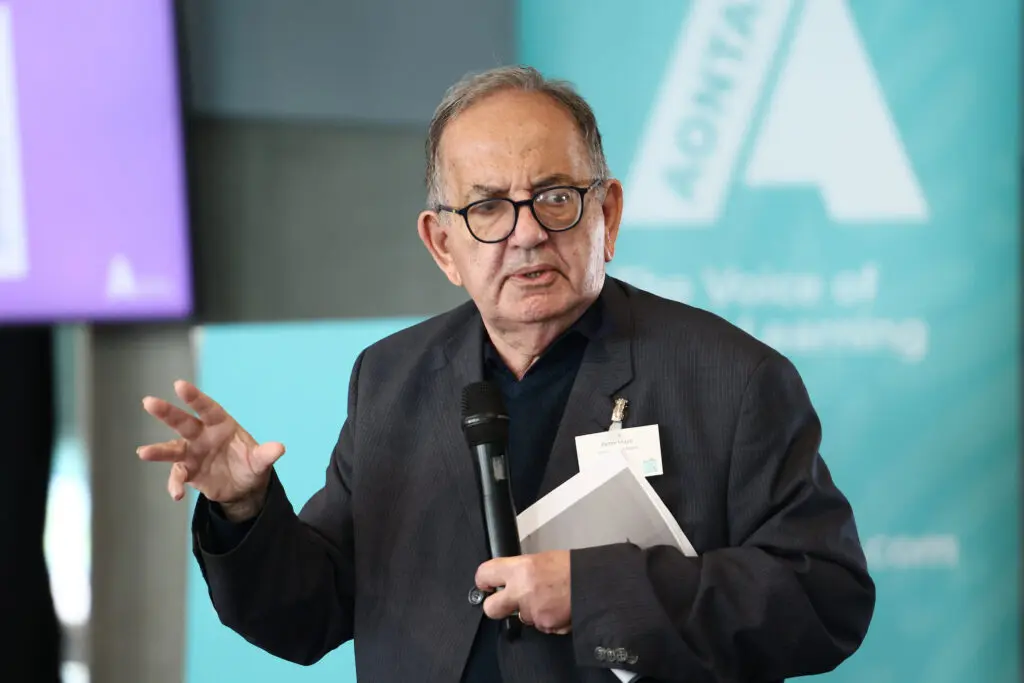The development of the Learner Voice Training plays a key role in this.
What have we done so far?
Karyn and I have delivered Learner Voice training across six Education and Training Boards (ETBs), engaging with 50 staff members.
We are focused on developing, piloting, and evaluating this training for staff across 12 ETBs by the end of 2025.
We delivered the training module with the following ETBs:
- City of Dublin (Prison Education)
- Galway and Roscommon
- Dublin and Dun Laoghaire
- Waterford and Wexford
- Louth and Meath
- Cavan and Monaghan
What is included in Learner Voice training?
The training covers the foundations and practice of Learner Voice, collaboration with other staff, and the practical tools and resources necessary to establish Learner Voice structures.
Training can be customised to meet the needs of the ETB and is open to anyone who works directly with learners, including centre managers and ETB staff who are responsible for Learner Development or those who collaborate with AONTAS in delivering the National FET Learner Forum.
We have found that having a mix of staff from different roles and various centres fosters a richer discussion.
This has also been reflected in the feedback from staff when we asked them to share their highlights from the training session.
Some of their answers are provided below:
“All teachers coming together, interacting, sharing ideas and communicating. Both speakers were excellent – explained the process perfectly”
“Hearing what is happening elsewhere and finding out how to get my learners’ opinions heard on a local basis. Also, what is planned for the future and to be a part of that process”
Read more here about previous sessions we have delivered.
After the training
At the end of each session, we ask staff to complete a short evaluation form. This ensures that we continually improve the training based on the participants’ feedback.
In line with the objectives of the NEAAL project, we are committed to evaluating the long-term impact of the training.
A few months after the training, we invite the participating ETBs to share any developments with Learner Voice structures.
While this is an opportunity to highlight the positive impact of the training, it also allows us to offer additional support, if needed, through guidance or resources.
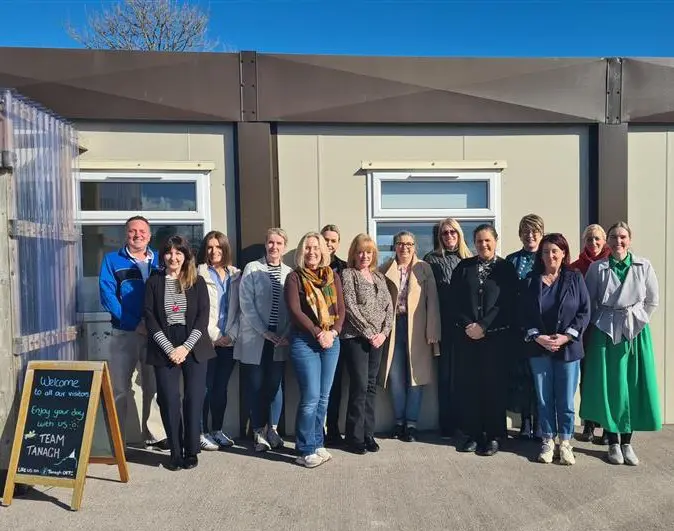
Impact so far
To evaluate the impact of the training, we are using a participatory approach called the Most Significant Change (MSC).
The training aims to strengthen Learner Voice structures, and using the MSC approach allows participants to select their own and sometimes unexpected indicators of success after receiving the training.
This approach is best suited for this training since each ETB is at a different stage with its Learner Voice structures and has different resources and restraints.
One of the staff members shared that he felt that the most significant change was the community of practice that was created.
This training was an important opportunity as it was first time many of the staff were meeting face-to-face. It was also mentioned how the training created a “Cascade Effect”, sparking numerous other Learner Voice initiatives, such as the development of a Learner Voice Steering Group.
The staff have been able to keep this community of practice going by holding online meetings, attending facilitation training together, and using a shared folder for resources.
It was also noted that the term “Learner Voice” was not widely used in the setting, but it is becoming more recognisable since the training.
Another example of the training’s impact has been the development of the Learner Council in Waterford and Wexford Education and Training Board (WWETB).
Karyn and I delivered Learner Voice training with staff in early November. We then had a session with 25 WWETB learners, focusing on committee skills.
Since then, they have elected a Chairperson, Vice Chairperson and Learner Ambassadors to the WWETB Learner Council.
Learner Voice Training for Learners
We also offer workshops for learners on Learner Voice, leadership, advocacy and committee skills.
If you would like to learn more about this, contact Ruby at rcooney@aontas.com
This project is funded through the New European Agenda for Adult Learning (NEAAL)
Funded by the European Union. Views and opinions expressed are however those of the author(s) only and do not necessarily reflect those of the European Union or the European Education and Culture Executive Agency (EACEA). Neither the European Union nor the granting authority can be held responsible for them.
![]()
